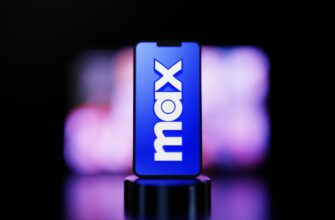Why Create a Backup Account Without KYC?
In today’s digital landscape, backup accounts serve as critical safety nets against data loss, hacking, or service disruptions. Opting for a non-KYC (Know Your Customer) approach prioritizes privacy and speed, avoiding lengthy verification processes that require personal documents. This is especially valuable for:
- Privacy-conscious users minimizing digital footprints
- Emergency preparedness when immediate access is needed
- Bypassing geographical restrictions in regulated regions
- Reducing identity theft risks from data breaches
Important Note: This tutorial focuses exclusively on legal, non-financial applications like email or cloud storage. Bypassing mandatory KYC for regulated services (e.g., banking) is illegal.
Step-by-Step Tutorial: Creating Your Non-KYC Backup Account
Follow this universal method to set up a secure backup account without identity verification:
- Choose a KYC-Free Platform
Select privacy-focused services like ProtonMail (email), Tresorit (cloud storage), or SimpleLogin (alias email). Avoid platforms requiring phone/ID verification. - Generate Anonymous Credentials
Use a temporary email service (e.g., Temp-Mail.org) for signup. Create a strong 12+ character password with a manager like Bitwarden. - Enable Encryption & Security Features
Activate end-to-end encryption and two-factor authentication (2FA) using an authenticator app—never SMS. - Verify Access and Sync
Test login from a secondary device. Sync critical data via encrypted export/import features. - Establish Recovery Protocols
Store backup codes offline in a secure location. Set up account inactivity alerts if available.
Critical Risks and Limitations
Non-KYC accounts carry inherent trade-offs:
- No account recovery if credentials are lost
- Reduced customer support options
- Potential service restrictions (e.g., storage limits)
- Legal compliance issues if misused for regulated activities
Always maintain a primary KYC-verified account for essential services while reserving non-KYC backups for non-critical data.
Top Non-KYC Backup Solutions Compared
- ProtonMail: Encrypted email with 500MB free storage
- Skiff: Decentralized storage with end-to-end encryption
- CryptPad: Open-source collaborative suite
- Standard Notes: Encrypted note-taking with cross-device sync
FAQ: Backup Accounts Without KYC
Q1: Is this method legal worldwide?
A: Yes, for non-financial accounts. Regulations vary by country—always consult local laws before implementation.
Q2: Can I use this for cryptocurrency wallets?
A: Non-custodial wallets (e.g., Exodus) don’t require KYC, but exchanging crypto for fiat currency always involves regulated KYC platforms.
Q3: How often should I update backup accounts?
A: Test access quarterly and refresh credentials every 6-12 months. Update stored data after major life changes.
Q4: What data should NEVER go in non-KYC backups?
A: Financial records, government IDs, medical history, or any data requiring legal protection.
Q5: Are there completely anonymous options?
A> True anonymity is nearly impossible online. Focus on privacy through encryption and data minimization instead.








